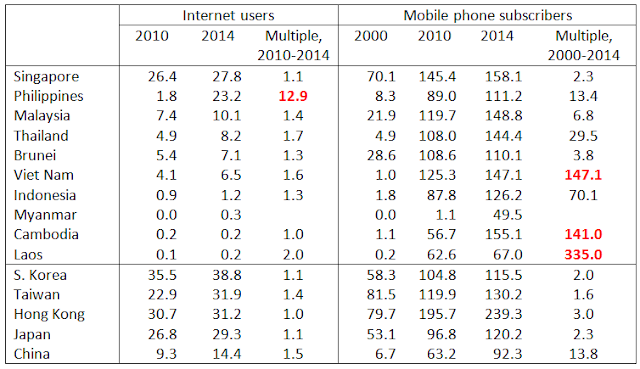A friend, Reuel Hermoso, was able to watch it and posted a photo in fb with a note, “Watching Noy sock it to government on Bloomberg PH TV.” Thanks Reuel.
I know, I know, I'm not a good public speaker or telegenic on tv, that is why I persist on writing. Anyway, how did I get there, well, segment host Quintin Pastrana said he found my article last week interesting, so he asked for an interview. It was Bloomberg staff Skipp Victor Macadagdag who invited me by email.
I agreed to the interview partly because I was also
curious how Bloomberg studio looks like inside. :-). Not big but lots
of lights and cameras.
With just 3-4 mins interview, I delivered my main message in the 1st minute -- as people get more access to the web and more info, they become more impatient with government corruption, taxes, permits and bureaucracies. Government should cut those taxes and bureaucracies.
A friend suggested that with high corruption in PH government, "that could be the reason they want our internet to remain
in Jurassic Park."
Actually if you check Table 1 of my article, you
will see that the PH has the fastest expansion in internet access in the ASEAN
and the rest of East Asia from 2010-2014. Coincidence, the PH also has the biggest
improvement in global ranking in the ASEAN, reduction in corruption perception, from 85th to 134th, Table 2.
Thanks for the invite, Bloomberg PH.
------------
See also:
Business Bureaucracy 10, WB's Doing Business 2016 Report, October 29, 2015
Business taxes, Makati vs. Taguig, November 01, 2015








